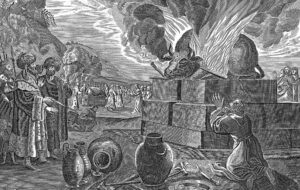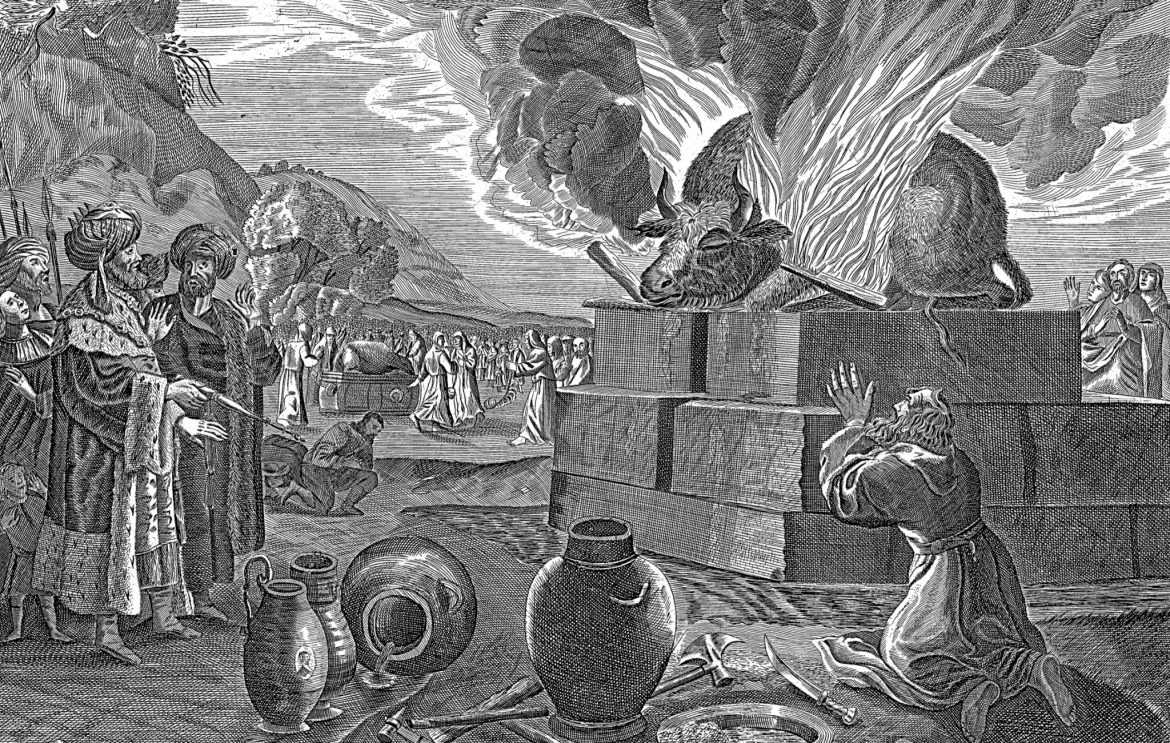
In the Biblical book of First Kings, Yahweh’s prophet Elijah challenged 450 pagans to a spiritual showdown on Mount Carmel in northern Israel. The stakes were high: whom would the Jewish people worship, Yahweh or Baal? Since the victors wrote the book, you can probably guess who won.
Some three millennia later, with the publication of Karl Marx’s three-volume Das Kapital, communism and capitalism began a similarly high-stakes contest for the soul of the world. Like Elijah and the prophets of Baal, these two competing systems brought irreconcilable spiritual roots to the fight. But can we say yet who won?
Regarding the soul of communism, to the extent it can be said to have one, it is the philosophy of atheism. Marx was an avowed atheist, though some of his writings also suggest surprising antipathy towards God. Seizing on this fact, at least one author has alleged Marx was a closet Devil worshipper. The consensus view, of course, is that he simply rejected belief in the divine. If he was an instrument of evil (not a stretch considering his quantifiable impact on the world), it must have been as an unwitting dupe.
One also finds evidence of communism’s atheistic heart in the implacable war that Marxist regimes in the Soviet Union, Maoist China, North Korea, and Cambodia waged against religious beliefs in their own people. Even today, after having scuttled the most economically dysfunctional aspects of Marxism, the Chinese Communist Party continues to oppress independent Christians and has imprisoned over a million Uyghur Muslims in reeducation camps.
Capitalism, on the other hand, while espousing no specific religious creed, first grew from a matrix of Christian cultures in Europe. In The Protestant Ethic and the Spirit of Capitalism, German sociologist Max Weber argues that this was not happenstance, but that the ethic of spiritual struggle and growth embedded in Protestant Christianity found a worldly analog in the capitalist economic model.
Additionally, Christianity’s view of the individual as the center of worth and agency also makes it a natural fit for the capitalist system. While the New Testament holds deep concern for the poor — in either spirit or pocketbook — the remedy it proposes is not collective command but individual love. Assets can, and often should, be given away, but as in the Old Testament, thou shalt not steal. Private property is just part of the Bible’s anthropology.
Today, over a century has passed since the ideological battle between communism and capitalism was joined by the publication of Marx’s massive, angry trilogy, one written from personal penury in the domed reading room of London’s British Museum.
During that span, capitalist economies have elevated their people’s material well-being more than any other system in human history. In her own hefty (and refreshingly un-angry) three-volume masterwork, capped in 2016 by Bourgeois Equality, economist Deirdre McCloskey credits the intellectual paradigm shift of capitalism with a “Great Enrichment” that lifted average living standards more than 30-fold in two centuries, a period unlike any the world had seen before.
Peter McNamara credits McCloskey with demonstrating that “…commerce cultivates a certain set of virtues, consisting of highly modified Aristotelian virtues spliced together with the Christian virtues of faith, hope, and love. The ‘Bourgeois Deal’ undergirding the Great Enrichment is truly an economic and moral winner.”
On the other side of the scorecard, societies that embraced Marx’s system have left behind memories such as a 96-mile wall built to trap people in their own homeland, long lines of shoppers unable to purchase basic consumer goods, and a perverse moral ecology in which thought police crowded ideological dissenters into concentration camps which one brilliant inmate, Aleksandr Solzhenitsyn, styled a “Gulag Archipelago.”
Which of these two systems works best?
There is only one rational answer. Nonetheless, the ideological struggle between communism and capitalism is not over. That’s because it actually goes back much further than Karl Marx or even the prophet Elijah. In the book of Genesis, the serpent convinces Eve to eat forbidden fruit, saying it will make her like God. Chasing this utopian vision, humanity’s parents lost paradise.
Like the serpent, communists say they can engineer utopia if only everyone aligns with the plan. Such a beautiful end justifies any amount of spilled blood.
Capitalists, on the other hand, are realists, understanding that mankind cannot perfect itself. This has been proven as consistently as the law of gravity. Better to have a system that accepts fallen human nature while endowing people with the freedom to struggle and better themselves as they see fit. The resulting individual growth aggregates into not only freer societies but wealthier ones, as the United States continues proving decades after the Soviet Union, once communism’s best hope, crumbled away.
